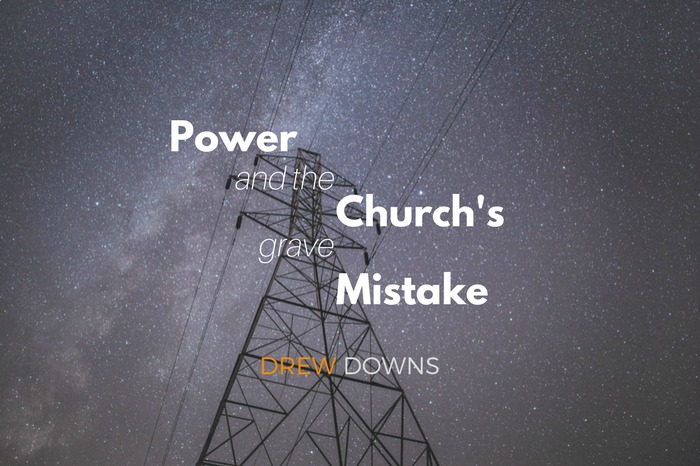In their book The Way of the Dragon Or the Way of the Lamb: Searching For Jesus’ Path of Power In a Church That Has Abandoned It, evangelicals Jamin Goggin and Kyle Strobel explore how the church has wrestled with the nature of power. And as you can guess from the title, the church has more often not, failed at their task.
This argument forms the theological backbone of the book: that central to our understanding of Christianity itself is how we understand power. Precisely that the way the world understands power is fundamentally different from the way God encourages us to see it.
This isn’t a new idea by any stretch, but it is one that may not be terribly popular for huge groups of Christians to hear. And may in fact be totally alien. On the other hand, many mainliners probably get a heavy dose of it from lectionary preachers.
In a turn which was both useful and demonstrative of their focus, Goggin and Strobel choose to not be the experts. They instead put themselves in the back seat of the story, seeking wisdom from their elders. These interviews allow them to explore major issues around power and the dangers of worldly obsession with power against the challenge of accepting the weak power of Jesus.
This give them the position to be examples of the changed seeker. We see in their example how seeking earthly power looks so normal and why it is so attractive. And most importantly, how they continue to struggle with it. But in seeking a different vision of power, they can come to embody that vision.
However, the book finds it’s weight primarily from these interviews with major thinkers, particularly in the second half. That’s when they meet with Jean Vanier, Eugene Peterson, and Dallas Willard. That’s when the conceits of the format really pay off.
The interviews provide not only an intellectual heft to their arguments, but compel the reader to see Christian vocation from a far more holistic place. Something beyond the confines of our theology or reasonable thinking, and into the space of living full, vibrant lives of faith.
The argument itself should be a nobrainer to anyone with a passing knowledge of the gospels. And yet somehow in our present environment it seems rebellious and new. That what we think of as power in our culture: self-reliance, dominance, money, size, gender: are foreign to God’s sense of power in weakness. These aren’t the attributes of power at all!
Weakness is the current of the gospels, not power.
Goggin and Strobel try hard to maintain the linguistic gymnastics of speaking of weakness as power, to maintain a vision of God as powerful. They could have gone the other way and made a more compelling argument: that God isn’t powerful. That God loves weakness rather than strength. That God loves poverty over riches and intimacy over dominance. This would track with Jesus’s flipping of our paradigm.
A similar linguistic challenge comes from how they speak of these two paths: the earthly and the divine, the dragon and the lamb. These images are simple enough, but they often use the phrases “faith from below” vs. “faith from above.” This created in me a dramatic internal conflict around cultural and theological depictions of these same phrases.
In my experience, speaking of something coming “from above” is authoritarian and “from below” is the spirit-filled grassroots movements to share and spread power among the people and away from central, abusive authorities.
But even then, this dissonance led back to that intrinsic nature of power. Back to the very question of whether to engage with our ability to do it ourselves or if we need a divine authority figure to direct traffic for us.
I found The Way of the Dragon Or the Way of the Lamb to be a deceptively good book. While I initially bristled at the style and feel of following a well-worn path, I was drawn into the deep questions for the church and for myself.
It put into scale how distant the church is in its behavior and expectation from the way of Jesus. While I knew this intellectually, and sensed it intuitively and spiritually, I didn’t comprehend the scope and distinction of this distance. I understood the gap and how the two worlds were different abstractly. But the book helped me see the engine which drives and widens the gap is in our self-reliance.
* * *
Disclosure of Material Connection: I received this book free from the author and/or publisher through the Speakeasy blogging book review network. I was not required to write a positive review. The opinions I have expressed are my own. I am disclosing this in accordance with the Federal Trade Commission’s 16 CFR,Part 255.

